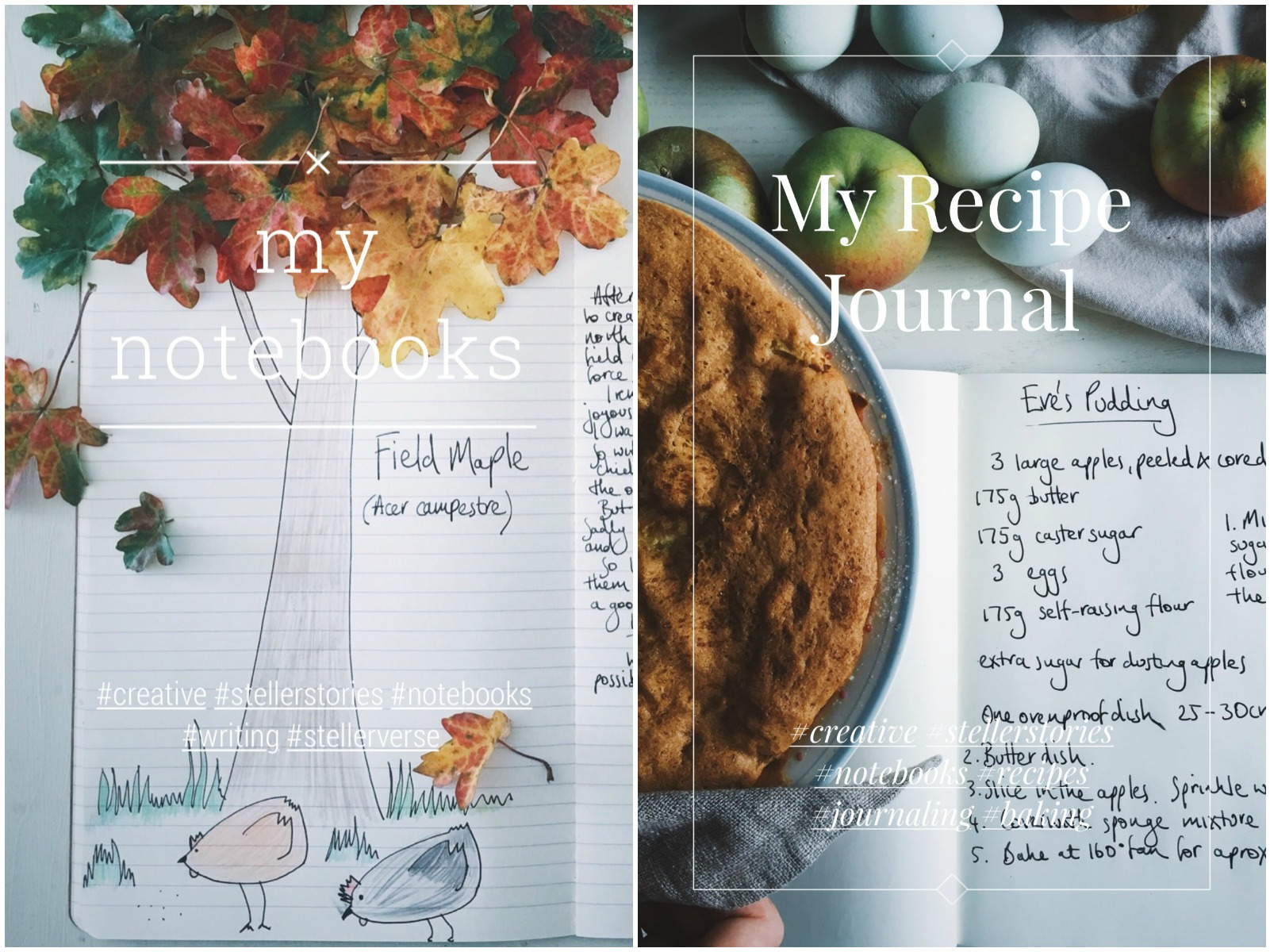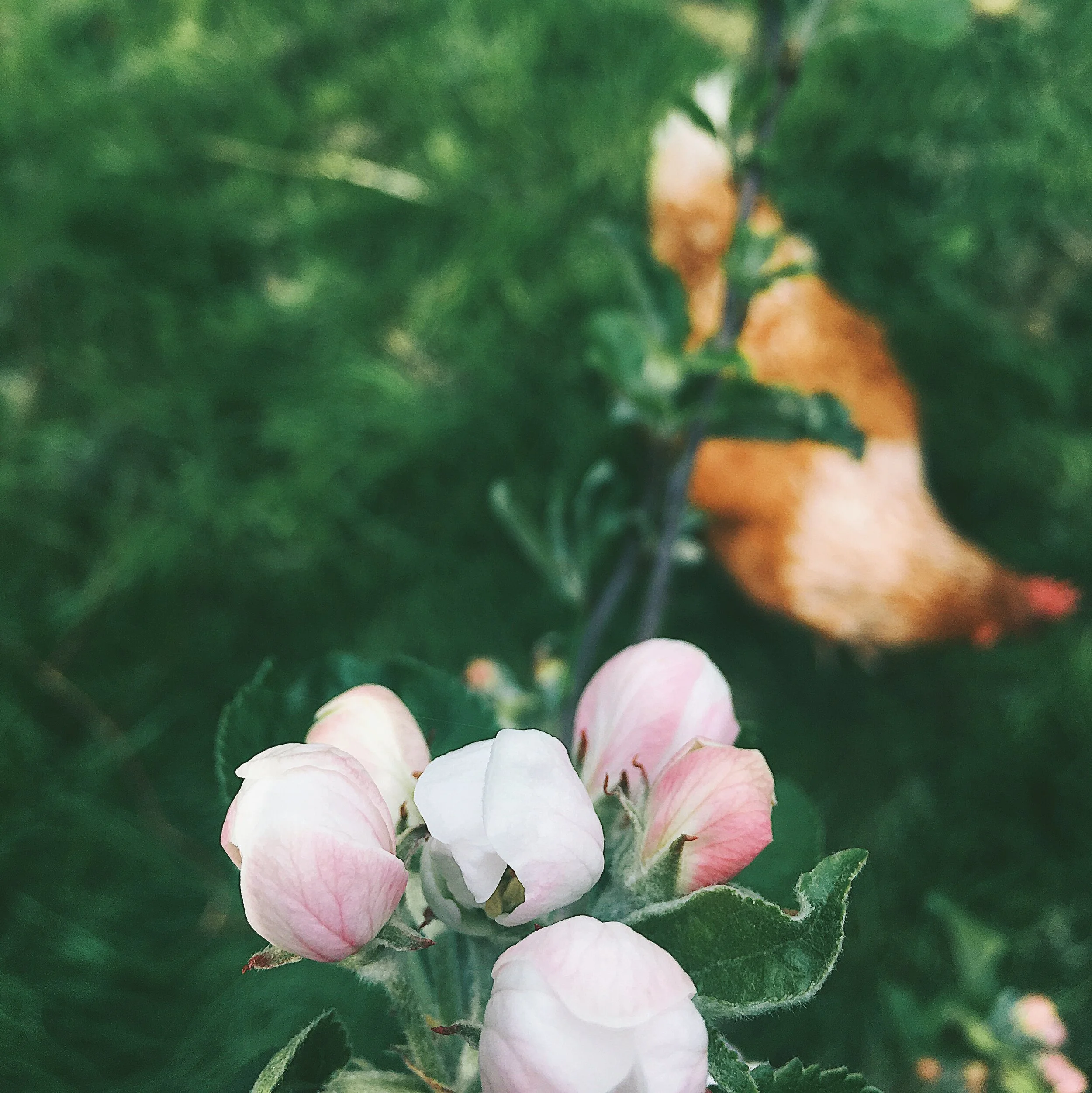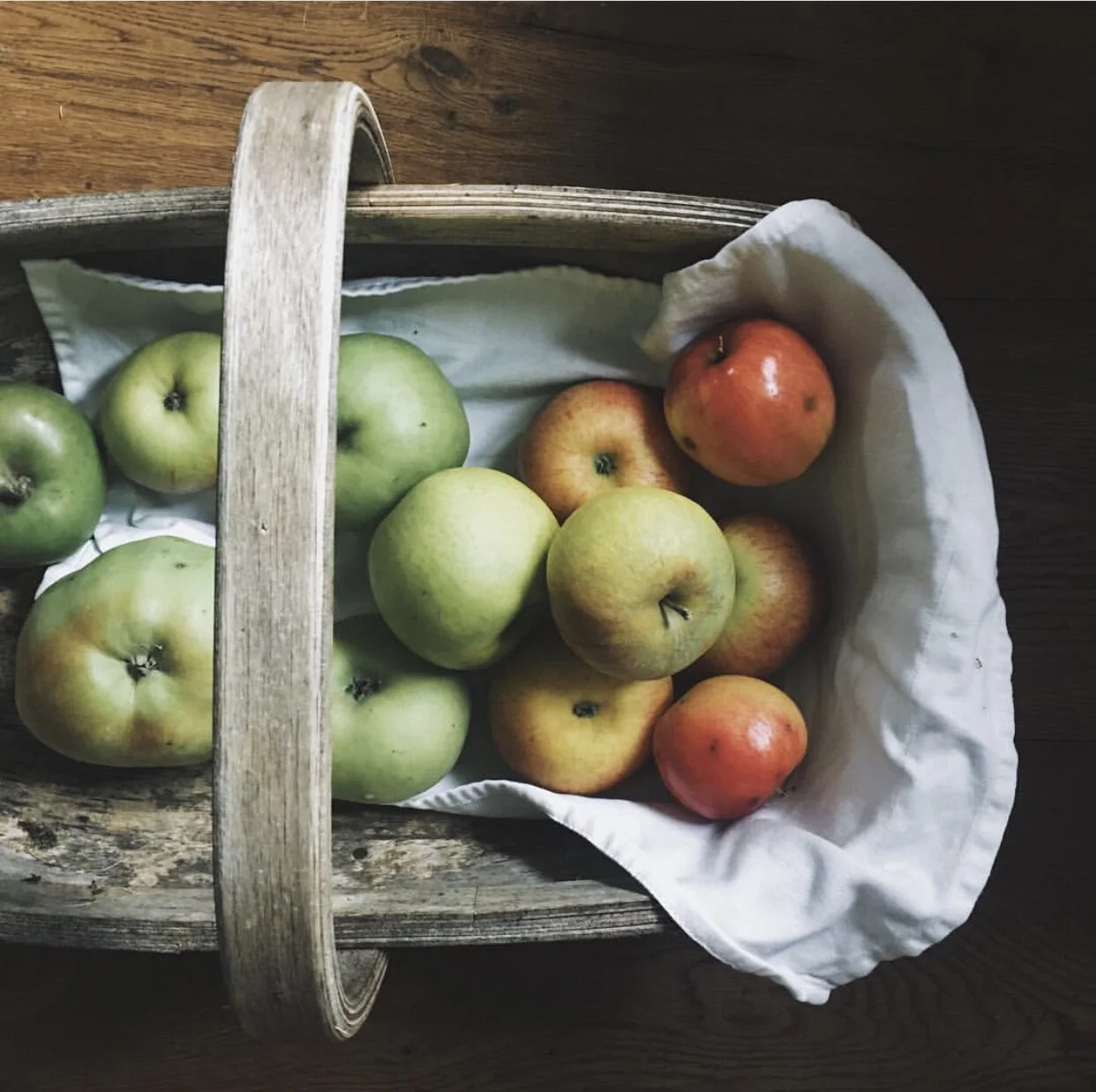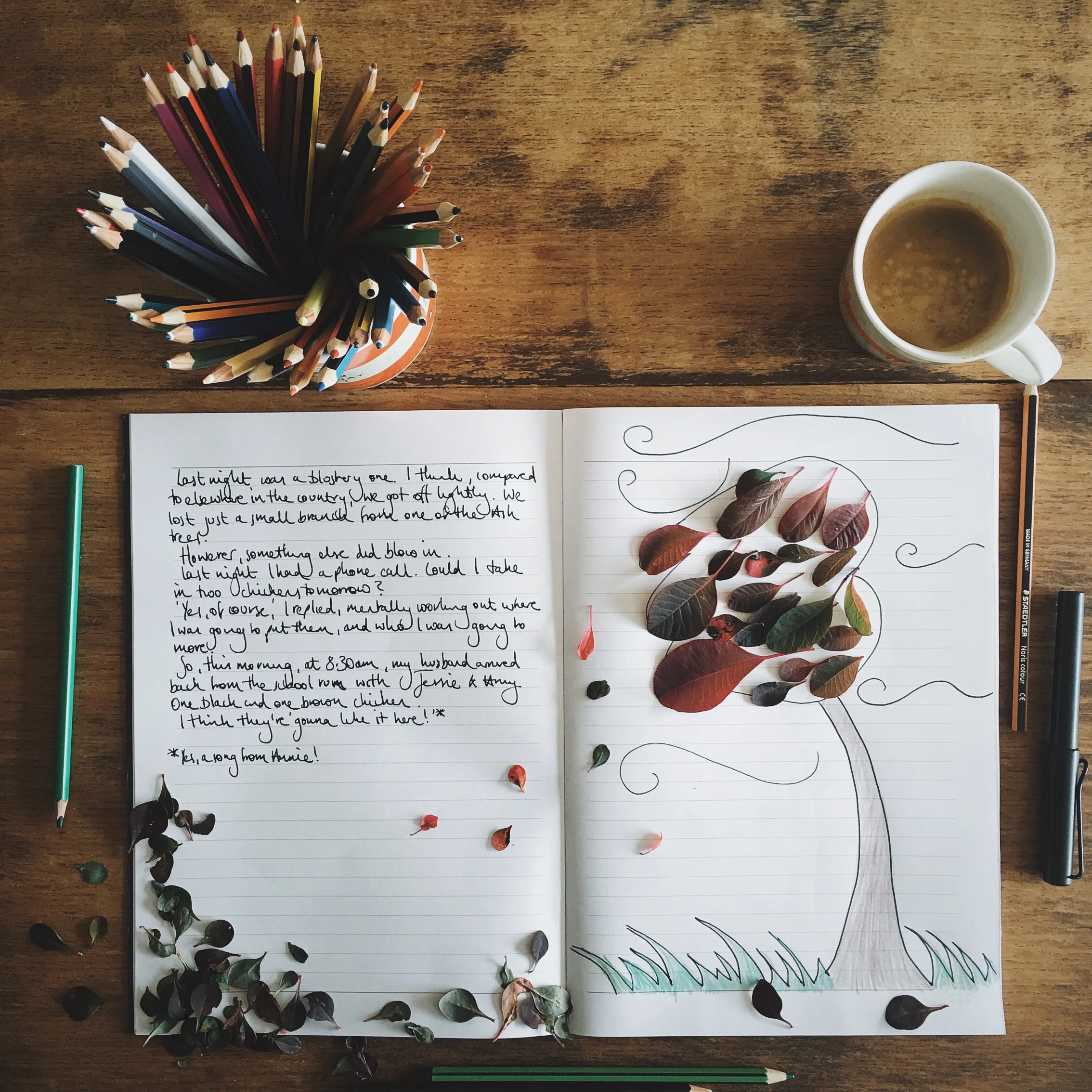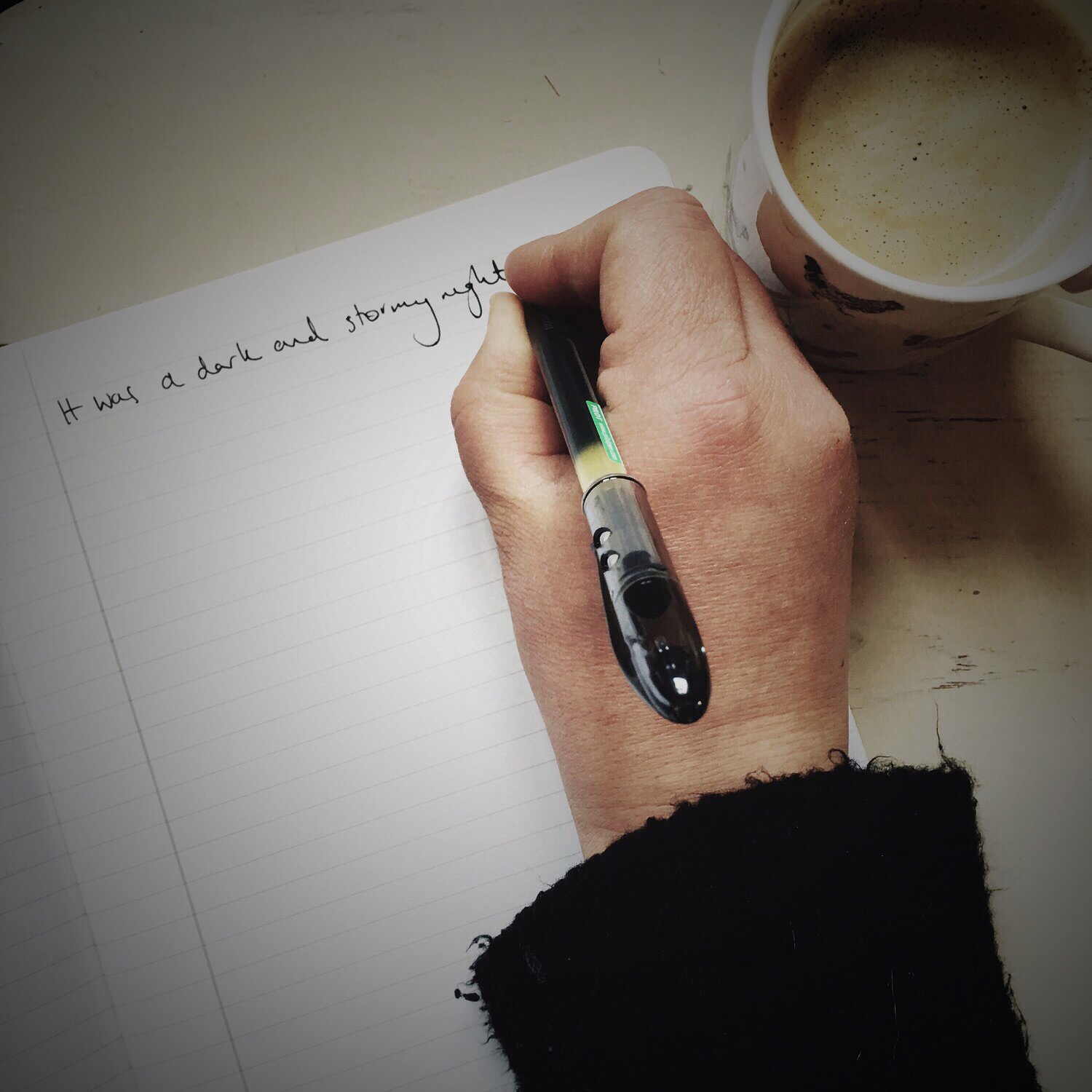One year ago I decided enough was enough. No longer was I going to hide under the table every time I posted something online. No longer was I going to hide my writing from the world. If I wanted to make a respectable living as a writer then I needed to push myself. I needed to do something differently to what I'd been doing for the last decade. It is one thing writing. It is another getting people, an audience, to read this writing. And isn't that what we, as writers, want? People to read our work? (And maybe a five figure advance on a book deal...)
Using Steller as a writer
In the past year I've been sharing more and more of my writing and photography online. There are a number of personal reasons for this, such as silencing (mostly) my imposter syndrome (I'll write about this in a future post) but also because of my love for Instagram. I really enjoy curating my instagram feed and telling a story through the photographs and the captions. It challenges me creatively; making me experiment and create things I'd never have thought of previously.
One thing that always gets lots of double-taps is my notebooks. People love looking at my handwriting, my notes and drafts of stories and my recipes.
So I've brought together two of my notebook projects from Instagram onto the Steller app.
My Notebooks from 2016, which is a collection of my rough drafts for My Stories, along with notes and plans and My Recipe Journal from 2016 - a collection of the recipes I made, recorded and photographed last year.
Are you on Steller (I'm abookishbaker)? What do you like to share over there?
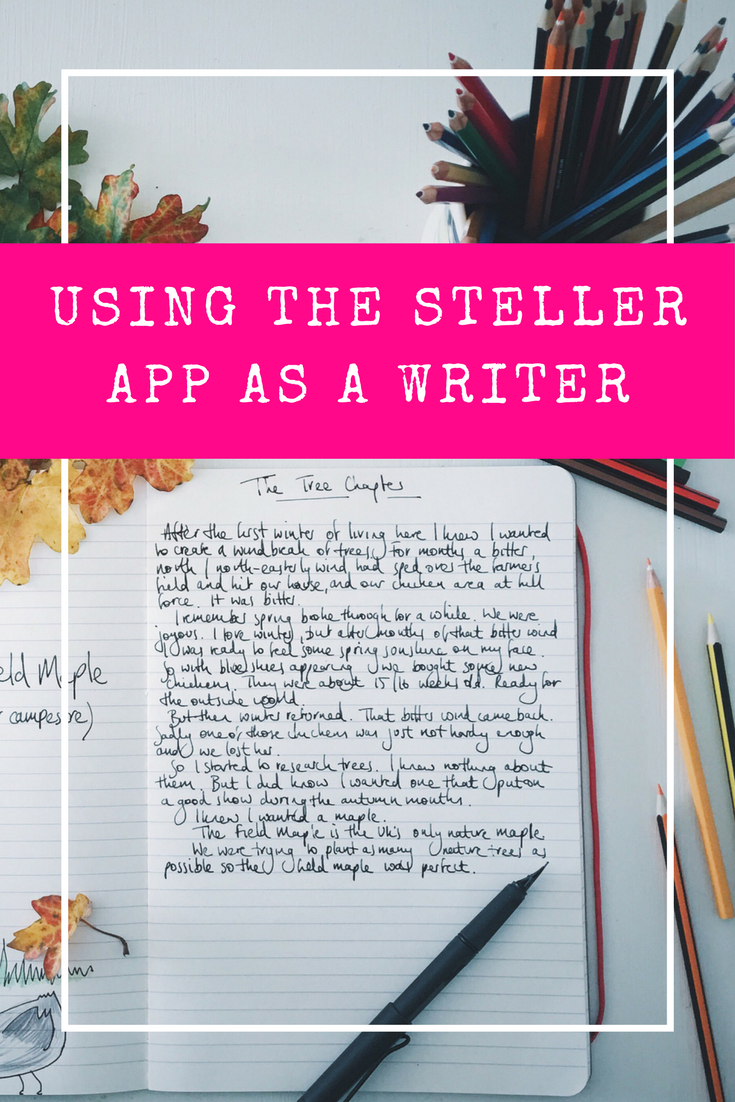
Five Ways Writers Can Use Instagram
Instagram is a wonderful place for creatives. Knitters, weavers, illustrators, photographers. So many people showing their work, talking about it, showing their process, their inspirations. But I never see many writers there. Perhaps because it's a photo-sharing app so writers aren't immediately drawn to it. But I think it's a fabulous place for writers; a great place to grow your audience and to be inspired and connect with other creatives.
Want some ideas? Here are five ways you could make Instagram work for you.
1. Show us where you work. Your desk, the table at the coffee shop, a crumpled duvet cover with notebooks scattered around. Cups of coffee, pots of tea and cake, stacks of books and notebooks are adored on Instagram. People love to see where writers are writing. I know I do. Don't you?
2. Show us your work. Your notepads, notes, ideas and rough drafts. This is one of my favourite things to share on Instagram and it has inspired my creativity as well as given me ideas for blog posts and non-fiction. Again it's that need to see how an author works and how they create.
3. What inspires you? Nature, buildings, front doors, cities, roads, chickens (the last one might be just me). Take a photograph and show us. Then tell us about it, why does it inspire you?
4. Use your captions creatively. Create some flash fiction or flash non-fiction to go with the photograph. Or use it as a prompt for others thereby creating a community. Really think about your caption - use it as a place to practice your descriptive writing. As you took the photograph what could you smell, hear, taste?
The day breaks. A muted crow from the cockerel. Breath chuffing like a steam train. Frost so heavy the ice is over an inch thick. A solitary leaf on a silver birch smothered in miniature icicles. Crunchy water in the stream. The willow weeps tiny flakes of ice onto my shoulders. Hands, stuffed into pockets, feeling like they're burning. A heron rises in front of me and soars over the field. The sun appears, liquified orange merging with the landscape. The orb's glow spreads around my heart.
5. Show us what you're reading. Have you heard of the bookstagram community? It's huge. Readers photograph their current read and chat about it in the description.
I'm using Instagram more and more like a micro-blog. I use it to share my notebooks, my desk, my writing process, books I'm reading but also to share what I'm seeing and feeling outside.
Tips
Always use (your own) good quality, non-blurry photographs taken in natural light.
Think about using a filter so when you look at the grid as a whole (the top three or four lines) there is a cohesiveness and attractiveness to it. I use VSCO.
Use hashtags to increase your reach. Don't use #writing #desk #coffee - these are far too generic. Hashtags are used to evoke a mood or an action. #createmakeshare #makersandthinkers and #momentsofmine are just three of the hashtags I used in one of my notebook shots.
Think about your profile page. Tell us you're a writer. Link to your blog, website or twitter.
YOU MIGHT ALSO ENJOY:
How do I Promote My Novel without the Hard Sell?
How do I promote my novel? Or, how do I get my writing seen? This is something more and more writers are asking. And not just those who are already published, either traditionally or on the indie route. Writers who have yet to be published are looking for ways of getting themselves noticed.
Traditionally a writer would write, edit, polish, and post out their precious manuscript awaiting for the rejection or acceptance. But things have changed. For a few it still works the traditional way. But nowadays being known on social media is a definite plus towards getting published. And then, when the writing becomes a book, the promotion is the responsibility of the author.
However. This goes against the grain of how many writers feel. An author friend of mine confided this week that she's hugely uncomfortable about blowing her own trumpet. And she went on to say that there is a balance between promotion and over promotion.
Yes, I agree.
After all, we all get annoyed when we follow a writer on twitter and immediately get a DM from them saying 'buy my book its only 99p on amazon'. Or maybe every five minutes you see the same auto-tweet promoting a book. Or an author endlessly retweets reviews of their novel. Or it keeps coming up on Facebook. Your response? Immediately you unfollow. Or mute them. Either way this completely goes against the intention of the writer who hasn't realised, perhaps naively, this is an extremely annoying thing to do.
See, there are a number of problems with this:
1. You're adopting a sales strategy of marketing. Personally I don't think readers like being 'sold' to and I'm sure authors feel uncomfortable doing it. So it's a half-hearted sales marketing strategy. The authors comes across as apologetic about their writing and who is going to buy a book the author is apologising for.
2. You're hard selling your book to people who already follow you. Yes, these followers need to know about your new book. But you need to attract other readers, too. And you're risking alienating those that do follow.
3. You're also hoping your current followers will share to their followers in order to reach more people. You're effectively giving the control to somebody else.
4. You think about marketing or sales AFTER you've written the book. It's the irritating thing you have to do. Oh, you sigh, now I've got to market my book.
So what's the answer?
The answer, I strongly believe, is to build up an online platform. An author platform. And when I say platform, I don't just mean creating a twitter account, I mean creating a presence across a broad spectrum of social media.
To create a brand.
Don't just market your book. Your brand is you.
As a writer, it is so important that you market yourself. I wrote this on a blog post earlier this week. You have to stand up, raise your hand and shout me, I'm here!
You can't just wait to be spotted. To be bought. For the supermarkets to stock your book. Or to be found in the slush pile. Or retweeted or shared on Facebook.
You need to take the control back and stop relying on others to make your writing career.
By creating an author platform you might write about something unrelated to your books. Or you might publish a short story on your blog or in a newsletter once a month. (Joanne Harris regularly writes small stories on twitter). You might share recipes, or tips. You might describe an unusual hobby you have. Or you might write about your writing process or journey. Or parenthood. Or where you live.
Whatever you decide to do you'll be creating a relationship with an audience. This audience will become engaged and connected. They'll look forward to reading your blog, or seeing you on twitter, or funny anecdotes you share on your Facebook page. They follow you because they want to. Because you entertain. You give them a lovely read, an inspiring photograph. So they're also highly likely to buy anything you might publish.
They TRUST you.
This also looks good when you contact an agent or a publisher. Because the hard bit of the marketing is already done.
It could also bring you to the attention of an agent or publisher. Or a magazine. Or a business that needs some copywriting. Or a brand that wants to pay you to promote them.
I know it works. An agent signed me when she read my work online. Yes, she found me. This is not intended as a brag, by the way, but to emphasise that marketing yourself, raising your profile, going for it, does work.
Now I want to build up my social media platform even further. I decided, early last year, to market myself as a brand. And this is why I created A Bookish Baker.
The aim was and still is, that by the time I finish writing and editing my novel I will have a generous amount of followers who enjoy my writing. Who enjoy my content (which is, incidentally, related to the novel I'm writing and the other non-fiction book ideas I've had) and would naturally want to read a book I've written. Hopefully this would then convince a publisher that I'm a good bet because I already have an audience out there.
This isn't a cynical way of looking at things. Conversely I like being a fan of a number of other people out there and would buy any book they write in a heartbeat. It's a natural progression. In fact, I've already done so. I'm a fan of Laura Jane Williams' blog, Superlatively Rude. And the smaller stories she writes in the captions on Instagram. Then I happily bought her book, in hardback, Becoming, when it was released.
Why not try it? Whether you're published; traditionally or self, whether you're looking for a book deal like me, or after an agent, or for any other reason you want to bring attention to something you've created.
Create an author platform. Create your brand. And get yourself out there.
What have you got to lose?
Tips on how to create an author brand:
- Where is your audience? Are they on twitter, facebook, Instagram, LinkedIn? Find out and create a presence there.
- Spend some time thinking about how you want to be seen. Think about what you want to write about. Bear in mind that many readers love to 'know' the writer behind the blog, or the book, or the magazine article (though being open isn't compulsory).
- Don't rush into social media until you've thought it through. Think about consistency. Have the same name for all your different social media accounts. Think about what you'll post and how this will show your brand in the best light. Incidentally you do not have to be on all social media. Be strategic.
- Write a plan. This doesn't need to be pages and pages. But plan ahead.
- I've found the best way to create your brand is to combine a number of platforms (though you don't have to be everywhere).
- You may want to think seriously about creating a blog. I think this is incredibly important as all your other platforms can point towards it. With all these other platforms (twitter, Instagram, Facebook etc), you're dependent on them being around. (Remember MySpace? Friends Reunited?) If all your followers are on twitter and it folds tomorrow or your account is hacked and wiped - you've lost all your followers and readers.
- With number six in mind writing a newsletter and capturing email addresses is essential.
Some examples:
- Twitter: The Yorkshire Shepherdess @amandaowen8 and Herdwick Shepherd @herdyshepherd1 both created twitter accounts, gained a large amount of followers simply by showing their day and have now written books.
- Facebook: The Unmumsy Mum is a great example of someone who built a huge following on there before getting a book deal.
- Instagram Learning to take pretty pictures with an iPhone and creating a curated feed is a great way to build followers and a community of people who like your work and writing.
- Newsletter subscribers - newsletters are being seen as increasingly important and becoming more popular especially as algorithms are changed.
- You could also create videos on Youtube (e.g Miranda Dickinson) or podcasts (e.g Sarah Painter and her brilliant The Worried Writer podcast).
- There is also Snapchat, Steller, Medium, Periscope. Lots to have a look at. But do not get overwhelmed at this stage. Take it one step at a time.
From there you could then pitch other websites, magazines both on and offline. The possibilities are endless.
And the audience is enormous.
YOU MIGHT ALSO LIKE:
You have to market yourself*
As writers we know we must show and not tell the reader what is happening. This goes for real life, too.
A short while ago I wrote about how I call myself a writer now.
But then it occurred to me. Even though I call myself a writer, I don't actually show people I write.
I didn't even have 'writer' in my Twitter or Instagram description. And when I landed myself an agent a few years ago I said nothing publicly online. Just quietly added the name of my agent to my bio. (Why did I do that? If I had that time again I'd shout it with a social media megaphone. It is major.)
It's all very well and good just quietly writing in the pre-social media age. A writer will write. Then they'll edit. And post the manuscript out in a large envelope to try and get published. Their hopes and dreams sliding into the red post box.
And no one needs to ever know.
But it's all different now.
The Internet has made things both easier and harder. Yes you can create a blog. Yes you can self publish. Press the button and it's out there.
Yet the amount of content online can be overwhelming. There is so much noise. You have to shout loudly in order to get yourself heard. Its like sticking up your hand in class and saying me, me, me.
You imagine disdainful faces turning slowly your way. You? You think that's any good? And this can be very uncomfortable.
A friend of a friend asked me for some advice a couple of years ago after they'd self published a novel. Get on the internet, I said. Get on twitter, find other writers, find book bloggers. But she didn't. She didn't feel comfortable doing that. And she didn't feel she should sell her novel at a promotional price, either. So her novel didn't sell. Because no one knew she was there.
And I can understand that. I really can. When I first started blogging I told no one. And I was so reluctant to get onto facebook and twitter. If I hadn't, incidentally, I'd never have found other writers, never have found (paid) writing work and never would have found an agent.
I read an excellent blog post about this by Emma Gannon some months ago. Tell people you exist Emma writes. With a follow up post called market your own work, because no one else will.
It's all very well being a writer. And writing brilliant and insightful things. But then you have to go out there and tell people you've written it. A publisher, an editor, an agent and, crucially, potential readers are not going to know about you, unless you tell them.
You have to be your own marketing manager, PR adviser, social media guru.
Please believe me when I say I know how unsettling this thought is.
But you have to show people what you write. And by this I don't mean constant tweeting of your Amazon link. Write other things other than your novel. Maybe it's a blog post, an Instagram feed with beautiful words in the captions, or you've discovered Steller and put your words and pictures on there. Maybe you write short stories on Twitter as a thread.
Give the readers something for free. Build up your engagement. Show people they can trust you. Demonstrate that you write things they care about on a consistent basis.
And yes, mention your book occasionally.
